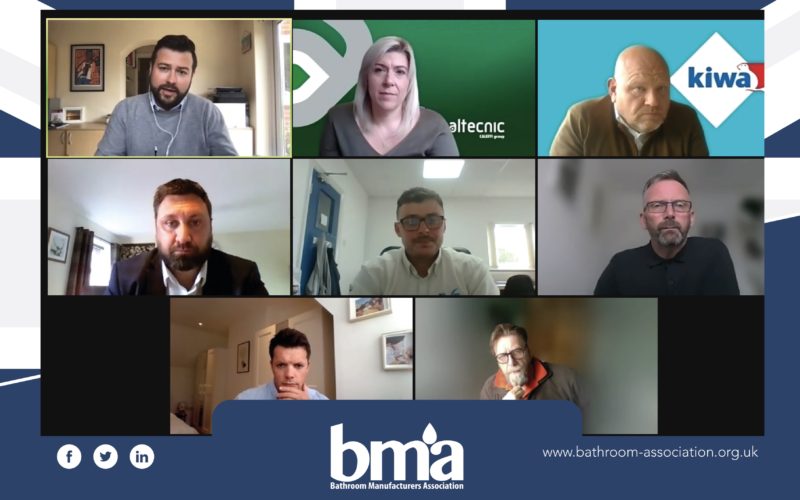The Bathroom Manufacturers Association hosted an online discussion on the importance of compliance in the sector and how it is benefitting the whole supply chain.
The event was attended by seven specialists from the sector. It was chaired by BMA Chief Executive, Tom Reynolds, and organised by Elemental, an online community for professionals in the water, air and energy industries.
The panellists at the session were –
Craig Holmes, Dart Valley Systems Ltd
Alex Hyslop, Kohler Mira Ltd
Sigi Herring, Bathroom Engineering Ltd.
Stephanie Allchurch, Altecnic
Andy Mclean, Bathroom Manufacturers Association
David Jay, Kiwa UK group
Jonathan Price, Kiwa UK group
BMA Chief Executive, Tom Reynolds, said: “Compliance is an essential part of supplying water fittings in the UK, and for connection to the water supply. At the Bathroom Manufacturers Association, it has been at the heart of our strategy since 2019.
“Members of the association spend considerable percentages of their budget ensuring they meet the exceptionally high standards required in the UK to protect the water supply from contamination by materials, or water being pulled into the system by backflow or back-siphonage through negative pressure in the water system.
“The regulations require products to be of an appropriate standard and be suitable for the circumstances they are used for, this is commonly referred to as ‘Regulation 4 complaint’, but there are a lot of myths about the regulation which need to be debunked.”
BMA is working to educate everyone in the supply chain, from manufacturers, specifiers and developers, to water undertakers, installers and consumers. Regulation 4 certification and correct installation of bathroom products will ensure the water supply and the public are kept safe. Specific demands for approvals from one test house are not necessary.
Stephanie Allchurch, Product Development Manager at Altecnic said: “As reputable manufacturers we put a lot of effort in to ensuring our products are compliant, safe and simple to install.
“Confusion comes when someone demands a certification from one particular scheme, without understanding there are equal or equivalents available from one of the three certification bodies.
“We need to make sure we are not having these same discussions in a few years’ time, Regulation 4 certification should be standard and this will encourage innovation and allow us to evolve and be at the forefront of what we do.”
